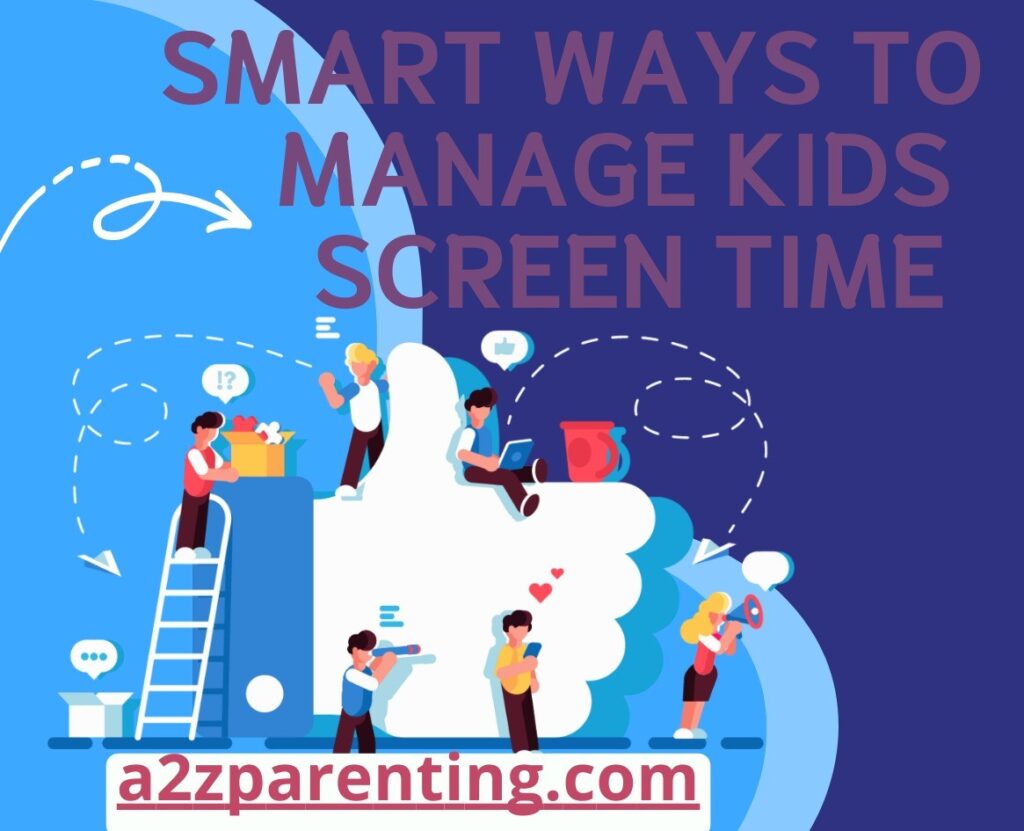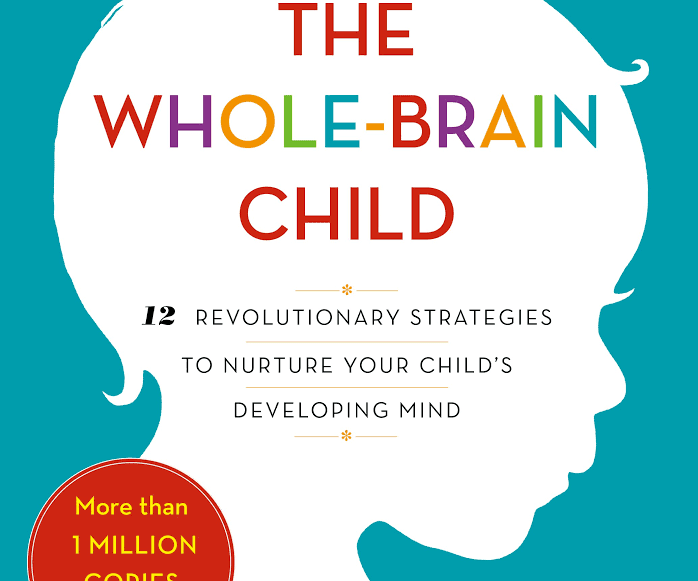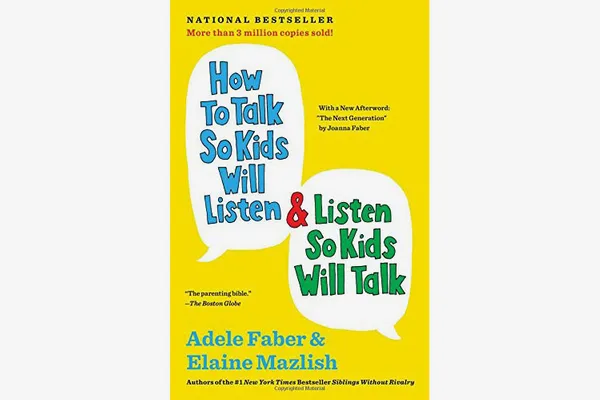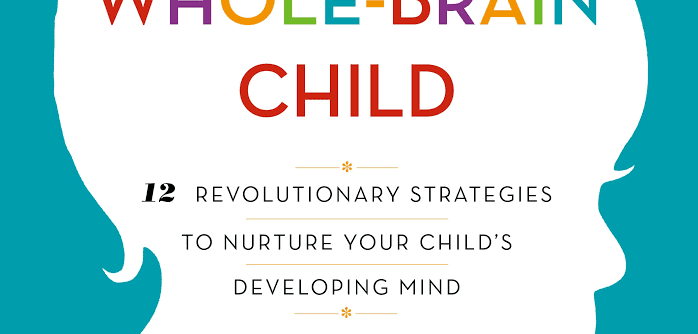Author: admin
About child sleeping schedule
Importance of kids sleeping schedule
A consistent and healthy sleeping schedule is crucial for children’s overall well-being and development. Here are some reasons why:
- Physical Health: A good night’s sleep is essential for physical growth and development in children. During sleep, the body repairs tissues, synthesizes hormones, and strengthens the immune system. Adequate sleep also helps prevent obesity and promotes a healthy metabolism.
- Cognitive Development: Sleep plays a vital role in cognitive function, including memory consolidation, learning, and problem-solving skills. Children who get enough sleep tend to perform better academically and have improved concentration and attention span.
- Emotional Regulation: Quality sleep is closely linked to emotional regulation and mental health in children. Sufficient sleep helps regulate mood, reduce irritability, and improve emotional resilience. Conversely, sleep deprivation can lead to mood swings, irritability, and increased risk of anxiety and depression.
- Behavioral Regulation: A consistent bedtime routine and adequate sleep contribute to better behavioral regulation in children. Well-rested children are more likely to exhibit positive behaviors, such as cooperation, self-control, and empathy, while sleep-deprived children may experience impulsivity, hyperactivity, and difficulty managing emotions.
- Physical Safety: Children who are sleep-deprived are at a higher risk of accidents and injuries, both during the day and while participating in activities. Alertness and coordination are compromised when children are tired, increasing the likelihood of accidents, falls, and mishaps.
- Healthy Habits: Establishing a consistent sleep schedule early in life helps children develop healthy sleep habits that can last a lifetime. Teaching children the importance of prioritizing sleep sets the foundation for good sleep hygiene and overall wellness as they grow older.
- Family Dynamics: A regular sleeping schedule benefits the entire family by promoting harmony and predictability in daily routines. When children have consistent bedtimes, parents can also enjoy more time for themselves or with each other in the evenings, leading to better family relationships and overall satisfaction.
In summary, a consistent sleeping schedule is critical for children’s physical health, cognitive development, emotional well-being, and overall quality of life. Prioritizing sleep helps children thrive academically, socially, and emotionally, laying the groundwork for a healthy and fulfilling future.
How to improve kids sleeping schedule
Improving a child’s sleeping schedule involves establishing consistent bedtime routines and creating a conducive sleep environment. Here are some tips to help:
- Set a Consistent Bedtime: Establish a regular bedtime and stick to it every night, even on weekends. Consistency helps regulate the body’s internal clock.
- Create a Relaxing Bedtime Routine: Develop a calming routine leading up to bedtime. This could include activities like reading a book, taking a warm bath, or listening to soft music.
- Limit Screen Time Before Bed: Reduce exposure to screens (TV, smartphones, tablets) at least an hour before bedtime. The blue light emitted by screens can interfere with the body’s natural sleep-wake cycle.
- Create a Comfortable Sleep Environment: Ensure the bedroom is dark, quiet, and at a comfortable temperature. Use blackout curtains, white noise machines, or earplugs if needed.
- Encourage Daytime Activity: Ensure your child gets enough physical activity during the day, but avoid vigorous exercise close to bedtime, as it can energize them.
- Watch Diet and Drinks: Avoid giving your child caffeine or sugary foods close to bedtime, as they can interfere with sleep. Offer a light, healthy snack if they’re hungry before bed.
- Establish Clear Expectations: Communicate the importance of sleep to your child and set clear expectations about bedtime rules. Consistency is key here.
- Be Patient and Understanding: It may take time for your child to adjust to a new sleep schedule. Be patient and offer reassurance and support as they adapt.
- Address Anxiety or Stress: If your child is struggling to sleep due to anxiety or stress, talk to them about their concerns and offer support. Consider relaxation techniques or counseling if needed.
- Consult a Healthcare Professional: If your child continues to have trouble sleeping despite your efforts, consider consulting a pediatrician or sleep specialist for further evaluation and guidance.
By implementing these strategies consistently, you can help improve your child’s sleeping schedule and promote better sleep habits for overall health and well-being.
Dealing with your child emotions

Emotional Regulation
Teaching your child how to manage and cope with their emotions is a crucial aspect of their overall development. By helping them understand and regulate their emotions, you are equipping them with valuable skills that will benefit them throughout their lives. One effective way to teach emotional regulation is through positive reinforcement.
When your child displays appropriate emotional responses, such as expressing their feelings in a calm and respectful manner, acknowledge and praise their behavior. This not only reinforces their ability to regulate their emotions but also encourages them to continue practicing these skills.
Another important aspect of emotional regulation is developing emotional intelligence. This involves helping your child recognize and understand their own emotions, as well as the emotions of others. By teaching them to identify different emotions and their triggers, you are empowering them to respond in a more thoughtful and controlled manner.
Conflict resolution is also a key component of emotional regulation. Teach your child effective communication skills, such as active listening and empathy, to help them navigate conflicts and express their emotions in a healthy way. Encourage them to find peaceful solutions and to consider the feelings of others during these situations.
Lastly, providing emotional support is essential for your child’s mental health. Create a safe and nurturing environment where they feel comfortable expressing their emotions without judgment. Be available to listen and validate their feelings, offering guidance and reassurance when needed. By teaching your child emotional regulation, you are setting them up for success in managing their emotions and building healthy relationships. These skills will serve them well throughout their lives, promoting their overall well-being and happiness.
Understand and manage emotional child
Understanding and managing emotional children is a crucial aspect of parenting and caregiving. It is important to try to understand your child’s emotions by putting yourself in their shoes. This means empathizing with them and trying to see things from their perspective. By doing so, you can build a stronger emotional connection with your child.
One way to understand your child’s emotions is by paying close attention when they talk about their feelings. Listen actively and without judgment, allowing them to express themselves freely. Let your child know that it’s okay to feel the way they do, and that their emotions are valid. This validation helps them feel understood and accepted, which is essential for their emotional well-being.
Once you understand your child’s emotions, it is important to help them manage and regulate these emotions. Teach them healthy coping mechanisms, such as deep breathing or taking a break when they feel overwhelmed. Encourage them to express their emotions in a respectful and constructive manner, rather than suppressing or lashing out.
Additionally, provide a safe and supportive environment where your child feels comfortable expressing their emotions. Create open lines of communication and encourage them to talk about their feelings. Offer guidance and reassurance when needed, and let them know that you are there to support them.
By understanding and managing your child’s emotions, you are helping them develop important emotional intelligence skills that will benefit them throughout their lives. It also strengthens your bond with them and fosters a positive and nurturing relationship.
Raise an emotionally happy child
Raise an emotionally happy child by equipping them with the necessary tools to manage their emotions. One effective tool is deep breathing, which helps children calm down and regain control when they are feeling overwhelmed or upset. Encourage your child to take deep breaths in through their nose and out through their mouth, teaching them to focus on their breath as a way to regulate their emotions.
Another helpful technique is mindfulness, which involves being present in the moment and paying attention to one’s thoughts and feelings without judgment. Teach your child to practice mindfulness by engaging in activities that promote awareness, such as guided meditation or simply taking a few moments to observe their surroundings. This can help them develop a greater sense of self-awareness and emotional regulation.
In addition to these techniques, establishing predictable routines can contribute to your child’s emotional well-being. Routines provide a sense of security and stability, reducing the likelihood of emotional outbursts. Create a daily schedule that includes regular mealtimes, bedtime routines, and designated times for play and relaxation.
Consistency and structure can help your child feel more secure and in control, leading to emotional stability and happiness. By providing your child with these tools and implementing predictable routines, you are empowering them to manage their emotions effectively. This sets the foundation for emotional well-being and happiness, allowing your child to navigate life’s challenges with resilience and confidence.
Manage and help child’s emotional control
Helping a child develop emotional control is an important aspect of their emotional and social development. By teaching them to recognize and name their emotions, you can help them better understand and express themselves. Use words to describe feelings, so they can develop a vocabulary to express their emotions effectively.
Encourage your child to identify and label their emotions by asking questions like, “How are you feeling right now?” or “What emotions are you experiencing?” This helps them become more aware of their emotional state and gives them the language to communicate their feelings to others. Once your child can identify their emotions, teach them healthy ways to manage and regulate them.
Encourage them to engage in activities that help them calm down and regain control, such as deep breathing exercises or engaging in a favorite hobby. By providing them with coping mechanisms, you are empowering them to take control of their emotions in a positive way. Additionally, model emotional control yourself.
Children learn by observing and imitating their parents or caregivers. Show them how to handle challenging emotions by staying calm and using healthy coping strategies. This not only teaches them valuable skills but also creates a supportive and nurturing environment for their emotional development.
By helping your child develop emotional control, you are equipping them with essential skills for navigating life’s challenges. They will be better able to regulate their emotions, communicate their needs, and build healthy relationships with others.
Parenting Tips, Child Emotions, Emotional Intelligence, Child Development, Parenting Challenges, Empathy Building, Positive Parenting, Emotional Support, Parenting Advice, Understanding Children,
How to know kids better at all age groups

Understanding kids of different age groups involves recognizing their developmental stages, interests, and needs.
Here’s a breakdown :-
Infants (0-12 months)
- Communication: They express needs through crying, gestures, and eventually babbling.
- Physical Development: Rapid growth, motor skill development (rolling over, sitting, crawling).
- Bonding: They develop attachment to caregivers, forming secure relationships.
- Sensory Stimulation: Respond to sights, sounds, and touch.
Toddlers (1-3 years)
- Language Development: Expanding vocabulary, beginning to form sentences.
- Independence: Want to do things on their own, but still need guidance.
- Emotions: Struggle with expressing emotions, may have tantrums.
- Play: Engage in imaginative and parallel play.
Preschoolers (3-5 years)
- Imagination: Flourishing imagination and creativity.
- Social Skills: Learning to share, take turns, and play cooperatively.
- Curiosity: Constantly asking questions to understand the world.
- Routine: Thrive on predictable routines and consistency.
School-Age Kids (6-12 years)
- Cognitive Development: Improved problem-solving and critical thinking.
- Peer Relationships: Begin to form friendships and navigate social dynamics.
- Interests: Developing hobbies and interests; may excel in specific areas.
- Emotional Development: Learning to manage emotions and understand empathy.
Adolescents (13-18 years)
- Identity Formation: Exploring personal values, beliefs, and identity.
- Peer Influence: Friends play a significant role in decision-making.
- Independence: Seeking more autonomy from parents and authority figures.
- Emotional Rollercoaster: Experience intense emotions due to hormonal changes.
Tips to Understand Kids Better:
- Active Listening: Pay attention and listen without judgment.
- Observe and Engage: Spend time with them, participate in their activities, and observe their behaviors.
- Ask Questions: Encourage them to express themselves and share their thoughts.
- Respect Their Individuality: Recognize and appreciate their uniqueness.
- Be Patient and Empathetic: Understand that they’re still developing and learning.
General Considerations:
- Developmental Milestones: Familiarize yourself with typical milestones for each age group.
- Communication Styles: Adapt your communication based on their age and comprehension level.
- Respect Boundaries: Understand their need for privacy and personal space as they grow older.
Remember, each child is unique, and factors like environment, culture, and individual temperament greatly influence their development. Flexibility and understanding are crucial when trying to connect with kids of various age groups.
FAQ’s about How to know kids better at all age groups
Understanding kids at different age groups involves recognizing their developmental stages and unique needs. Here are FAQs regarding getting to know kids better across various age ranges:
Infants (0-12 months):
1. How do I understand what my newborn needs?
- Watch for cues like crying (for hunger, discomfort, or fatigue), body language, and facial expressions. Respond promptly to their needs.
2. How can I bond with my baby?
- Engage in skin-to-skin contact, talk, sing, and maintain eye contact during feeding and playtime.
3. What milestones should I look for?
- Milestones include lifting their head, rolling over, babbling, and beginning to sit up or crawl.
Toddlers (1-3 years):
1. How do I manage tantrums?
- Acknowledge their feelings, offer choices, maintain routines, and provide a calm environment.
2. How do I encourage their development?
- Encourage exploration, provide age-appropriate toys, engage in imaginative play, and read to them regularly.
3. What are common developmental milestones?
- Walking, talking, increased independence, and developing basic motor skills.
Preschoolers (3-5 years):
1. How do I handle their curiosity?
- Encourage exploration, answer their questions, and provide opportunities for hands-on learning.
2. What social skills should I focus on?
- Teach sharing, taking turns, and basic problem-solving skills through play and interactions with peers.
3. How can I encourage their creativity?
- Offer art supplies, encourage pretend play, and participate in imaginative activities together.
School-Age Children (6-12 years):
1. How do I support their learning?
- Help with homework, encourage reading, engage in discussions, and support their interests through extracurricular activities.
2. How do I handle conflicts or peer pressure?
- Teach problem-solving skills, promote open communication, and encourage positive friendships.
3. How can I foster independence?
- Give them age-appropriate responsibilities, encourage decision-making, and allow them to learn from mistakes.
Adolescents (13-18 years):
1. How do I communicate effectively with teenagers?
- Listen actively, respect their opinions, and be available for conversations without judgment.
2. How do I navigate their need for independence?
- Set boundaries while granting autonomy, guide decision-making, and provide support when needed.
3. How do I handle challenging behaviors?
- Understand that mood swings and rebellion are common, maintain open communication, and seek professional help if needed.
Understanding kids at different stages involves a mix of observation, empathy, and adapting your approach to suit their changing needs. Always remember that every child is unique, and flexibility is key in parenting or caregiving.
About Smart ways to manage kids screen time

Managing kids’ screen time can be challenging, but there are several smart strategies you can implement to help regulate and balance their usage
Set clear rules – Establish specific guidelines for screen time, including when and for how long screens can be used. Make sure these rules are communicated clearly and consistently enforced.
Lead by example – Children often model their behavior after adults, so demonstrate healthy screen habits yourself. If you limit your screen time, it sends a powerful message to your kids about its importance.
Create tech-free zones and times – Designate certain areas of your home, like the dining room or bedrooms, as screen-free zones. Also, establish times, such as during family meals or an hour before bedtime, where screens are off-limits for everyone.
Use parental controls – Many devices and apps offer parental control features that allow you to set time limits, restrict access to certain content, and monitor usage. Take advantage of these tools to manage and track your child’s screen time.
Encourage alternative activities – Encourage your kids to engage in other activities like reading, playing outdoors, arts and crafts, or playing board games. Offering appealing alternatives to screen time can help reduce their reliance on devices.
Set a schedule – Create a daily or weekly schedule that includes a variety of activities, including screen time, homework, physical activity, and family time. Having a structured routine helps kids understand when it’s appropriate to use screens and when it’s time for other activities.
Use screen time as a reward – Instead of allowing unlimited access to screens, use screen time as a reward for completing chores, homework, or engaging in physical activities. This helps reinforce positive behavior and teaches responsibility.
Engage with your child during screen time – When possible, watch movies, play games, or explore educational apps together. This not only allows you to monitor content but also turns screen time into a bonding experience.
Encourage mindfulness – Teach your children about the importance of being mindful of their screen time. Help them understand the impact excessive screen use can have on their health, sleep, and overall well-being.
Have open conversations – Discuss the reasons behind screen time limits with your kids. Encourage them to ask questions and express their concerns, and collaborate on finding solutions that work for the whole family.
Remember, the goal isn’t necessarily to completely eliminate screen time but rather to find a healthy balance that allows your child to enjoy technology while also engaging in other enriching activities. Flexibility and communication are key in managing kids’ screen time effectively.
Here are some frequently asked questions (FAQs) about managing kids’ screen time along with their answers –
- How much screen time is appropriate for my child? The American Academy of Pediatrics (AAP) recommends:
- For children aged 2 to 5: Limit screen time to 1 hour of high-quality programming per day.
- For children aged 6 and older: Establish consistent limits on screen time that ensure adequate sleep, physical activity, and other healthy behaviors.
- What are some signs that my child may be spending too much time on screens? Look out for signs such as:
- Irritability when not allowed to use screens
- Disrupted sleep patterns
- Decline in academic performance
- Lack of interest in other activities
- Physical symptoms like headaches or eye strain
- Should I completely ban screens or allow limited use? Total avoidance might not be practical or beneficial in the long run. Instead, focus on setting reasonable limits and ensuring that screen time doesn’t interfere with other important activities like homework, physical exercise, and social interaction.
- What are some effective parental control tools for managing screen time? There are various parental control apps and features available on devices that allow you to set time limits, monitor usage, block certain apps or content, and establish schedules. Some popular options include Apple’s Screen Time, Google Family Link, and third-party apps like Qustodio or Norton Family.
- How can I encourage my child to engage in non-screen-related activities? Provide a variety of alternative activities such as outdoor play, sports, hobbies, reading, arts and crafts, or board games. Lead by example and actively participate in these activities with your child to make them more engaging.
- What’s the best way to enforce screen time rules without constant conflict? Consistency is key. Establish clear rules and consequences for violating screen time limits. Also, involve your child in setting these rules to gain their buy-in. Offer incentives for following the rules and be ready to calmly enforce consequences when necessary.
- Is educational screen time okay? Educational screen time can be beneficial, but it’s essential to balance it with other activities. Choose high-quality, age-appropriate content and ensure it doesn’t replace essential activities like physical exercise, social interactions, or sleep.
Remember that every child is different, so it’s crucial to adapt these strategies to fit your child’s needs and your family’s dynamics. Regularly reassess and adjust screen time rules as needed based on your child’s development and any changes in technology or circumstances.
Promoting a growth mindset in children

Promoting a growth mindset in child involves creating an environment that fosters their sense of worth, competence, and independence. It is essential for their development and success. A growth mindset encourages the belief that abilities and intelligence can be developed through effort, learning, and perseverance.
Strategies to help in promoting a growth mindset in children
- Unconditional Love and Acceptance: Show your child love and acceptance regardless of their successes or failures. Make sure they know that your love is not based on their achievements.
- Encourage Autonomy: Allow your child to make age-appropriate decisions and choices. This helps them develop a sense of control and independence.
- Praise Effort, Not Just Results: Focus on praising the effort your child puts into tasks, rather than solely the outcome. This teaches them that hard work is valuable.
- Set Realistic Expectations: Set achievable goals that match your child’s abilities and developmental stage. This helps them experience success and build confidence.
- Provide Opportunities for Mastery: Give your child opportunities to learn new skills and experience success. Mastery of tasks boosts their self-esteem.
- Celebrate Achievements: Celebrate both small and big achievements in your child’s life. This reinforces their sense of accomplishment.
- Model Self-Confidence: Demonstrate self-confidence in your own actions and decisions. Children often learn by observing their parents.
- Encourage Positive Self-Talk: Teach your child to use positive and empowering language when talking about themselves.
- Teach Problem-Solving: Help your child develop problem-solving skills by letting them find solutions to challenges. This builds their confidence in their ability to handle situations.
- Provide Constructive Feedback: Offer feedback that is specific and focused on improvement, rather than criticism. Encourage your child to learn from mistakes.
- Support Interests: Encourage your child to explore their interests and passions. This helps them develop a sense of competence and identity.
- Value Individuality: Emphasize that everyone is unique and has their strengths. Celebrate your child’s individual qualities and talents.
- Foster Resilience: Teach your child to bounce back from setbacks and failures. Resilience contributes to a strong sense of self.
- Create a Safe Space for Expression: Let your child express their thoughts and feelings without judgment. This builds their self-esteem and communication skills.
- Teach Empathy: Help your child understand and empathize with others’ feelings. This boosts their social skills and self-awareness.
- Encourage Risk-Taking: Support your child in trying new things, even if they might fail. Learning to handle failure positively is a key part of self-confidence.
- Positive Body Image: Promote a healthy body image by focusing on health and well-being rather than appearance.
- Encourage Perseverance: Teach your child that challenges and setbacks are part of life, and encourage them to persevere through difficulties.
Remember that building self-confidence is an ongoing process. Tailor your approach to your child’s individual personality and needs. Be patient and consistent in your efforts to create a supportive and nurturing environment that helps your child develop a strong sense of self-worth.
Promoting a growth mindset can help children develop a love for learning, resilience in the face of challenges, and a belief in their ability to improve and succeed. It’s an invaluable mindset that can set the stage for a lifetime of personal and academic growth.
Importance of Promoting a growth mindset in children
Promoting a growth mindset in children is of utmost importance because it plays a significant role in their overall development and future success.
Key reasons why fostering a growth mindset in children is essential are as –
- Encourages learning
- Builds Resilience
- Promotes Effort and persistence
- Reduces fear of Failure
- Enhances Self Esteem
- Develops Problem-Solving Skills
- Promotes a “Can-Do” Attitude
- Fosters Independence
- Prepares for the Future
- Reduces Fixed Mindset Limitations
- Strengthens Relationships and
- Encourages a Healthy Perspective on Success.
Growth mindset in children includes –
Children with a growth mindset are more inclined to view challenges and mistakes as opportunities to learn and grow. This mindset fosters a love for learning and a curiosity about the world around them. A growth mindset helps children develop resilience and the ability to bounce back from setbacks and failures. They are more likely to persevere in the face of challenges and setbacks, which is a crucial life skill.
Children with a growth mindset understand that effort is a key factor in achieving success. They are willing to put in the effort required to improve and accomplish their goals. With a growth mindset, children are less afraid of making mistakes or failing because they see these experiences as part of the learning process. This reduces anxiety and fear associated with failure.
Children with a growth mindset tend to have higher self-esteem because they base their self-worth on their efforts and improvements rather than on innate abilities or external validation. A growth mindset encourages children to approach problems and challenges with a problem-solving attitude. They are more likely to seek creative solutions and think critically.
Children with a growth mindset believe in their ability to improve and succeed with effort. This positive attitude can extend to various aspects of their lives, from academics to personal goals. A growth mindset empowers children to take ownership of their learning and development. They become more independent and proactive in pursuing their goals.
In a rapidly changing world, adaptability and a willingness to learn are highly valuable skills. A growth mindset equips children with the mindset needed to thrive in an evolving environment. By promoting a growth mindset, children are less likely to hold limiting beliefs about their abilities. They are more open to exploring new interests and pursuing a wide range of opportunities.
Children with a growth mindset tend to be more resilient in interpersonal relationships. They can handle conflicts and setbacks more effectively and view challenges in relationships as opportunities for growth. A growth mindset shifts the focus from seeking external validation to finding satisfaction in personal growth and progress. This healthier perspective on success can lead to greater fulfillment in life.
In summary, promoting a growth mindset in children is crucial because it empowers them with the belief that they can improve, learn, and succeed through effort and perseverance. This mindset not only benefits their academic and personal development but also equips them with the skills and attitudes needed to thrive in an ever-changing world.
Ways to promoting a growth mindset in children
Promoting a growth mindset in children involves creating an environment that encourages them to embrace challenges, persevere through setbacks, and believe in their ability to improve. Here are some effective ways to foster a growth mindset in children:
Praise Effort, Not Intelligence: Instead of saying, “You’re so smart,” praise their effort and strategies. For example, say, “I can see you worked really hard on this.” Celebrate Mistakes: Emphasize that mistakes are opportunities to learn. Encourage them to discuss what they learned from their mistakes and how they can improve. Encourage Challenges: Encourage children to take on challenges and step out of their comfort zones. Let them know that it’s okay to struggle because it means they’re growing.
Use “Yet” Language: When they say, “I can’t do it,” add the word “yet.” For example, “You can’t do it yet, but with practice, you will get better.” Teach the Brain is Like a Muscle: Explain that the brain is like a muscle that gets stronger with use. The more they practice and learn, the smarter they become. Model a Growth Mindset: Demonstrate a growth mindset in your own life. Share stories of your own challenges and how you overcame them through effort and learning.
Discuss Famous Failures: Talk about successful individuals who faced failures and setbacks before achieving their goals. This can inspire children to persevere in the face of difficulties. Encourage Learning from Feedback: Teach children to accept constructive criticism and use it as a tool for improvement rather than as a judgment of their abilities. Set Realistic Goals: Help children set achievable goals. Break down larger goals into smaller, manageable steps to make progress more tangible.
Promote Curiosity: Encourage children to ask questions and seek knowledge. Support their natural curiosity and exploration. Provide Challenging Activities: Offer activities and puzzles that are challenging but solvable with effort. This helps children experience the rewards of persistence. Create a Growth Mindset Language: Incorporate phrases like “I can improve,” “I can learn this,” and “I’ll give it my best effort” into everyday conversations.
Avoid Labels: Refrain from labeling children as “smart” or “not smart.” Such labels can create fixed mindsets. Instead, emphasize that everyone can improve with effort. Offer Support and Encouragement: Let children know you believe in their abilities and are there to support and encourage them in their learning journey. Be Patient: Building a growth mindset takes time. Be patient and consistent in your efforts to instill this mindset in children.
Provide Opportunities for Mastery: Give children opportunities to develop skills and experience success in areas they are passionate about. Mastery boosts confidence. Engage in Growth Mindset Activities: Use resources and activities designed to teach and reinforce the concept of a growth mindset. There are books, games, and online resources available.
Remember that promoting a growth mindset is an ongoing process. By incorporating these strategies into your parenting or teaching approach, you can help children develop a mindset that supports their learning, resilience, and personal growth
FAQ’s about promoting a growth mindset in children
Certainly, here are some frequently asked questions (FAQs) about promoting a growth mindset in children:
1. What is a growth mindset, and how does it differ from a fixed mindset? – A growth mindset is the belief that abilities and intelligence can be developed through effort and learning. A fixed mindset, on the other hand, believes that abilities are innate and cannot be changed.
2. Why is it important to cultivate a growth mindset in children? – Cultivating a growth mindset in children helps them embrace challenges, persevere through setbacks, and develop a love for learning. It also fosters resilience and a belief in their ability to improve.
3. When should I start promoting a growth mindset in my child? – You can start promoting a growth mindset from a very young age by encouraging a positive attitude toward learning, effort, and challenges.
4. How can I praise my child to foster a growth mindset? – Praise your child’s effort, strategies, and perseverance rather than their innate abilities. For example, say, “You worked really hard on this project, and it shows.”
5. Are there any resources or books that can help me teach my child about growth mindset? – Yes, there are many children’s books and resources designed to teach the concept of a growth mindset. Some popular titles include “The Girl Who Never Made Mistakes” by Mark Pett and Gary Rubinstein and “The Most Magnificent Thing” by Ashley Spires.
6. What should I do if my child becomes discouraged or frustrated when facing a challenge? – Offer support and encouragement. Remind them that challenges are opportunities for growth and that their effort will lead to improvement. Help them break down the challenge into smaller, manageable steps.
7. How can I model a growth mindset for my child? – Share stories of your own challenges and how you overcame them through effort and learning. Demonstrate a willingness to learn and improve in your own life.
8. Can a growth mindset be developed in older children, or is it more effective to start early? – A growth mindset can be developed at any age, but it is generally more effective to start early. However, older children and even adults can still benefit from cultivating a growth mindset.
9. How can I encourage my child to embrace failure and see it as a learning opportunity? – Normalize failure by discussing it openly and positively. Emphasize that mistakes are part of the learning process and provide examples of famous individuals who faced failures on their path to success.
10. Is it possible for a child with a fixed mindset to develop a growth mindset? – Yes, children with a fixed mindset can develop a growth mindset with the right guidance and support. It may take time and consistent effort, but it is possible.
11. What are some signs that my child is developing a growth mindset? – Signs include a willingness to take on challenges, a positive attitude toward effort, resilience in the face of setbacks, and a belief in their ability to improve.
12. How can I create a supportive environment for promoting a growth mindset at home or in the classroom? – Encourage a culture of learning, effort, and resilience. Provide opportunities for challenges, celebrate successes, and offer support during setbacks.
Promoting a growth mindset in children is a valuable endeavor that can significantly impact their lifelong learning and development. These FAQs provide guidance on how to begin fostering this mindset in the young learners in your care.
Tags – Growth Mindset, Children’s Development, Education, Parenting, Learning Attitude, Resilience, Positive Parenting, Effort and Achievement, Classroom Strategies, Child Psychology, Building Self-Esteem, Encouraging Challenges, Mindset Education, Teaching Growth Mindset, Student Motivation, Educational Resources, Parenting Tips, Problem Solving, Perseverance, Learning from Failure,
How to raise a self-confident child?

Raising a self-confident child involves creating an environment that fosters their sense of worth, competence, and independence.
Strategies to help you raise a self-confident child
Unconditional Love and Acceptance: Show your child love and acceptance regardless of their successes or failures. Make sure they know that your love is not based on their achievements.
Encourage Autonomy: Allow your child to make age-appropriate decisions and choices. This helps them develop a sense of control and independence.
Praise Effort, Not Just Results: Focus on praising the effort your child puts into tasks, rather than solely the outcome. This teaches them that hard work is valuable.
Set Realistic Expectations: Set achievable goals that match your child’s abilities and developmental stage. This helps them experience success and build confidence.
Provide Opportunities for Mastery: Give your child opportunities to learn new skills and experience success. Mastery of tasks boosts their self-esteem.
Celebrate Achievements: Celebrate both small and big achievements in your child’s life. This reinforces their sense of accomplishment.
Model Self-Confidence: Demonstrate self-confidence in your own actions and decisions. Children often learn by observing their parents.
Encourage Positive Self-Talk: Teach your child to use positive and empowering language when talking about themselves.
Teach Problem-Solving: Help your child develop problem-solving skills by letting them find solutions to challenges. This builds their confidence in their ability to handle situations.
Provide Constructive Feedback: Offer feedback that is specific and focused on improvement, rather than criticism. Encourage your child to learn from mistakes.
Support Interests: Encourage your child to explore their interests and passions. This helps them develop a sense of competence and identity.
Value Individuality: Emphasize that everyone is unique and has their strengths. Celebrate your child’s individual qualities and talents.
Foster Resilience: Teach your child to bounce back from setbacks and failures. Resilience contributes to a strong sense of self.
Create a Safe Space for Expression: Let your child express their thoughts and feelings without judgment. This builds their self-esteem and communication skills.
Teach Empathy: Help your child understand and empathize with others’ feelings. This boosts their social skills and self-awareness.
Encourage Risk-Taking: Support your child in trying new things, even if they might fail. Learning to handle failure positively is a key part of self-confidence.
Positive Body Image: Promote a healthy body image by focusing on health and well-being rather than appearance.
Encourage Perseverance: Teach your child that challenges and setbacks are part of life, and encourage them to persevere through difficulties.
Remember that building self-confidence is an ongoing process. Tailor your approach to your child’s individual personality and needs. Be patient and consistent in your efforts to create a supportive and nurturing environment that helps your child develop a strong sense of self-worth.
FAQ’s about how to raise a self-confident child ?
Certainly, here are some frequently asked questions (FAQs) about raising a self-confident child:
Q. What is self-confidence in children, and why is it important?
Ans. Self-confidence in children refers to their belief in their abilities and worth. It’s crucial because it contributes to their overall well-being, helps them face challenges, and builds resilience.
Q. How can I boost my child’s self-esteem from a young age?
Ans. You can boost your child’s self-esteem by providing love, encouragement, and opportunities for them to succeed. Praise their efforts, show interest in their activities, and provide a secure and supportive environment.
Q. What role does praise play in building self-confidence?
Ans. Praise, when used effectively, can boost self-confidence. It’s important to praise effort and specific achievements rather than offering empty or overly general compliments.
Q. Should I shield my child from failure and disappointment to protect their self-confidence?
Ans. No, failure and disappointment are part of life and can be valuable learning experiences. Encourage your child to face challenges and teach them how to handle setbacks constructively.
Q. How do I help my child develop resilience?
Ans. You can foster resilience by teaching your child problem-solving skills, encouraging a growth mindset, and providing support and guidance during difficult times.
Q. Is it okay to set high expectations for my child’s achievements to motivate them?
Ans. Setting high expectations is fine as long as they are realistic and achievable for your child’s age and abilities. Unrealistic expectations can lead to stress and erode self-confidence.
Q. What are some signs that my child may be struggling with low self-confidence?
Ans. Signs of low self-confidence can include social withdrawal, avoiding challenges, self-criticism, a fear of failure, and seeking constant approval.
Q. How can I help my child develop a positive self-image and body confidence?
Ans. Encourage a healthy lifestyle, focus on health rather than appearance, and provide a positive body image by avoiding negative comments about body size or appearance.
Q. Is it ever too late to work on improving my child’s self-confidence?
Ans. It’s never too late to work on improving self-confidence. Children, like adults, can continue to develop their self-esteem throughout their lives.
Q. What should I do if my child faces bullying or peer pressure that affects their self-confidence? –
Ans. Provide emotional support, teach them coping strategies, and communicate with school authorities or relevant parties to address bullying or peer pressure issues.
Q. How can I balance building self-confidence with teaching humility and empathy?
Ans. Teach your child that humility and empathy are important qualities. Encourage them to be considerate of others and to recognize that everyone has strengths and weaknesses.
Q. Are there any resources or books I can use to learn more about raising a self-confident child?
Ans Yes, there are many books and online resources available that provide guidance on raising self-confident children. Some popular titles include “The Self-Esteem Workbook for Teens” by Lisa M. Schab and “The 7 Habits of Highly Effective Teens” by Sean Covey.
Remember that raising a self-confident child is an ongoing process, and it’s important to adapt your approach to your child’s individual needs and personality.
Tags – Self-Confidence, Parenting Tips, Child Development, Positive Parenting, Building Self-Esteem, Resilience, Self-Efficacy, Confidence-Building Activities, Parenting Skills, Child Psychology, Self-Confident Kids, Emotional Development, Parenting Strategies, Nurturing Self-Esteem, Encouraging Independence, Developing Confidence, Positive Reinforcement, Parent-Child Relationship, Healthy Self-Image, Communication Skills,
Parent teacher meeting agenda

Parent teacher meeting agenda
The conference starts with a warm greeting and agenda
Initially when the conference begins, teacher welcome with greetings, and they keep thoughts and information, so that to appear prepared and organized. while explore about parent teacher conferences 2023, or parent teacher meeting agenda. Words and information used or presented as have little weight. Additionally, one need to focus and make reminder that parent – teacher have a common goal and that is to help the child.
Parent Teacher Conference Strategies
Many students do not require annual parent-teacher conferences after elementary school for all students. Therefore, when a secondary school teacher meets with parents for a conference, it is usually a question of whether the student in question is struggling academically, practically, or both. In reality, a parent-teacher conference can have a huge impact on student functioning and behaviour. This list focuses on helping to prepare themselves for these often difficulties conferences.
Be aware – Parent teacher meeting agenda
Use best listening skills in the conference. Let the one talk without interruption. Make eye contact and keep your body language open. Don’t jump on the defensive. Active listening techniques can help with this. If one is upset, other can validate this feeling by saying something like, “I understand you are upset about this situation. What can we do to help child be more successful? Huh?” This ensures that the conference remains focused on the child. Remember that sometimes people just want to feel that they have been heard.
Start and end on a positive note
It’s nice to say something about the student in question. For example, as to say something about –
Creativity, handwriting, sense of humor etc.
Also, at the end of the conference, try to wrap things up on a positive note. Instead of repeating problems which already discussed, end with a comment that shows hope for the future. As to say something like, “Thanks for meeting with me today I know that working together we can help (child name) succeed.”
Too many shortcomings of children or criticism over talks, prevents parents from coming to the meeting, so the teacher should treat the children equally. Only then will the confidence of the children remain. Parents are not able to tolerate the lack of their children by someone. So after the meeting is over, the teacher should talk to the parents and both should find a solution to this problem together.
Being an education expert, the teacher is expected to give the right advice for the progress and development of the child. It is important to maintain this belief. However, in PTM teachers must personally interact with the parents of 40-50 children in a day. In such a situation, the teacher tries to settle it as soon as possible.
It needs to be changed. Parents should call on separate days in small groups. This group should be made based on the performance of the children and their grades.
Importance of Parents Teacher Conferences or parent teacher meeting agenda
PTM is very important for the development of the child,
So parents must go and the teacher should also answer every question from the parents of the children with humility and patience. Children should be made aware of both the good and the bad.
It is also important for the teacher to listen carefully to the parents. Then give some feedback, because every problem has a solution.
Whatever the shortcomings in the child at the educational level, it is also necessary to try to overcome it by making efforts from both sides. Despite having such good objectives, teachers and parents are not very excited about PTM. We take it as a mere formality. Keeping in mind the kind of environment in which today’s children are living, it has become necessary for the parents to know everything about their child by meeting the school teacher
What is child deficiency and how to overcome it?
In PTM, you also meet the parents of your child’s friends. With this, you can take some valuable parenting tips from those parents too. From time to time, sit with the children and take a leisurely check whether they have any kind of problem.
If there is any problem related to the school, then definitely talk to the teacher about it. Also find out from the teacher whether your child is disciplined or not. They will give you some tips to be disciplined with the child and teach him discipline.
Parental understandings during parent teacher meeting agenda
If your child is not doing well in school, talk to the teacher openly about it and ask for a solution. If your child interacts with other children and the teacher in the class or if he is sitting quietly in some corner, then you will get the answers to all these important questions in this parent-teacher meeting only.
If you have any complaint with the teacher, then you can solve it right here. Some children prefer to just read books more than write, while some just remember things very well. And teachers know everything about their students. Get this information from them.
Some parents feel that their child is doing very well in school, so why do they need to go to PTM? But some things related to your child’s development are known only after going to school, so you should go to PTM to know every progress of your child. The main purpose of interaction between parents and teachers is to make children self-reliant. To share things with each other related to his personality and to know his shortcomings.
While selecting the school, we should keep in mind whether the selected school helps the student to advance at the global level or not.
Responding to a query, exploration says – that the time has come to establish such schools so that the child does not depend only on the guidance of the teachers. Parents and teachers should also be partners in his all round development. Parents should also have direct knowledge of the creativities, cleverness, imaginations, ingeniousness, innovativeness etc. So, that both school teacher and the parents can play their important role in the mental development.
The school should meet the standards of material resources of the 21st century, which is a great requirement in the modern education system. On an occasional basis an exhibition should organized by the students of the school. The admin and management team of the school, termed the science exhibition as a children’s Fairley progressive report and congratulate children.
Giving information about the continuous efforts being made by the educational centres with the aim of improving the versatility of the girl students along with studies, specifically appealed to all the parents to motivate the girl students to participate in the educational activities conducted in the school and college.
Academic instructor said that collective participation of teachers, parents and students is necessary for the educational development of the students and for the up-gradation of the institution, which is possible only through mutual dialogue, interview, contact and cooperation among them.
Key aspects to explore about parent teacher conferences
- Parent-teacher conferences are meetings held between parents or guardians and teachers to discuss a student’s academic progress, behavior’s, and overall development. These conferences play a crucial role in fostering effective communication and collaboration between parents and teachers to support the child’s education. Here are some key aspects to explore about parent-teacher conferences.
- Frequency: Parent-teacher conferences are typically scheduled once or twice a year, depending on the school’s policy and the age of the students. Some schools may have additional conferences if there are specific concerns or special circumstances.
- Preparation: Parents and teachers often prepare for the conference by reviewing the student’s academic work, test scores, and behaviors’ in class. This preparation helps ensure that the discussion is focused and productive.
- Discussion Topics: The conference may cover various topics, such as academic performance in different subjects, study habits, social interactions, behaviour, attendance, and extracurricular activities.
- Goal Setting: Parent-teacher conferences provide an opportunity to set academic and behavioural goals for the student. Collaborative goal setting helps create a shared commitment to the child’s progress and success.
- Open Communication: Both parents and teachers should feel comfortable sharing their observations, concerns, and questions during the conference. It is essential to maintain open and respectful communication.
- Student Involvement: In some cases, especially with older students, the child may also participate in the conference. This inclusion can foster a sense of responsibility and ownership of their education.
- Follow-up: Parent-teacher conferences are not a one-time event. It is vital to follow up after the conference to track progress toward the set goals and address any ongoing concerns.
- Special Education Conferences: For students with special needs, there may be individualized education program (IEP) meetings or other specialized conferences to discuss specific accommodations and support.
- Language Access: Schools should provide interpretation services if needed to ensure that non-English speaking parents can fully participate in the conference.
- Supporting Teachers and Parents: Conferences offer teachers a chance to understand the child’s home environment better and for parents to learn about the school’s expectations and curriculum.
- Privacy and Confidentiality: Both parents and teachers should respect the privacy of the discussions during the conference and refrain from sharing sensitive information with others.
Overall, parent-teacher conferences are valuable opportunities for parents and teachers to collaborate in the best interest of the child’s education and holistic development. Effective communication and partnership between parents and teachers can significantly impact a student’s success in school.
FAQ’s about Parent teacher meeting agenda
Q1: What is the purpose of a parent-teacher meeting agenda? A:- The agenda serves as a roadmap for the parent-teacher meeting, outlining the topics to be discussed and ensuring that important aspects of the student’s academic and social development are covered.
Q2: Who creates the parent-teacher meeting agenda? A: Typically, the teacher or school staff will create the agenda, but parents may also have the opportunity to suggest specific topics they would like to discuss.
Q3: What topics are commonly included in a parent-teacher meeting agenda? A: Common topics include academic progress, strengths and weaknesses, behavior in the classroom, study habits, social interactions, extracurricular activities, and setting academic or behavioral goals.
Q4: How is the parent-teacher meeting agenda shared with parents? A: The agenda is usually shared in advance of the meeting through email, a printed copy sent home with the student, or posted on the school’s online platform.
Q5: Can parents request specific items to be added to the agenda? A: Yes, parents can usually request specific topics to be included in the agenda to ensure that their concerns or questions are addressed during the meeting.
Q6: How much time is typically allocated for a parent-teacher meeting? A: The duration of parent-teacher meetings can vary, but they typically last between 15 to 30 minutes. However, some schools may allow for longer meetings if needed.
Q7: What should parents do if they cannot attend the scheduled parent-teacher meeting? A: If parents cannot attend in person, they should communicate with the teacher to arrange an alternative meeting time or explore the option of a phone or virtual conference.
Q8: Are parent-teacher meetings only for discussing issues or concerns? A: No, parent-teacher meetings are also an opportunity to celebrate the student’s achievements, growth, and positive behavior in the classroom.
Q9: Can students be involved in the parent-teacher meeting? A: In some cases, especially with older students, they may be invited to participate in the conference. Including students can promote a sense of responsibility and ownership of their education.
Q10: Can the parent-teacher meeting agenda be adjusted during the meeting? A: Yes, the agenda can be flexible. If certain topics require more time for discussion, adjustments can be made to ensure all important matters are addressed.
Q11: Are parent-teacher meetings confidential? A: Yes, parent-teacher meetings are generally considered confidential. Both parties should respect the privacy of the discussions and avoid sharing sensitive information with others.
Q12: How often are parent-teacher meetings held? A: Parent-teacher meetings are typically scheduled once or twice a year, but some schools may offer additional conferences or progress updates as needed.
Q13: Can parents bring additional family members or support to the parent-teacher meeting? A: Yes, parents can bring additional family members or support if they believe it will be beneficial for the discussion and support of the student’s education.
Q14: What should parents do after the parent-teacher meeting? A: After the meeting, parents should follow up on action items discussed, monitor their child’s progress, and maintain open communication with the teacher throughout the school year.
communication between parents and teachers, discuss the social and emotional skills, Explore about parent teacher conferences 2022, family involvement in children’s education, information and questionnaires about your ward, ongoing home school communication, opportunities to share progress with parents, parent teacher meeting agenda, staple of school life, update on academic progress of your ward, #ParentTeacherMeeting, #PTM, #MeetingAgenda, #ParentTeacherConference, #SchoolCommunication, #StudentProgress, #AcademicPerformance, #SocialDevelopment, #BehaviorInClassroom, #SettingGoals, #EducationPartnership, #StudentAchievements, #StudyHabits, #ExtracurricularActivities, #PositiveBehavior, #SupportingEducation, #StudentGrowth, #SchoolEngagement, #AcademicSupport, #SchoolUpdates, #EducationCollaboration, #EffectiveCommunication, #StudentWellBeing, #SchoolInvolvement, #ParentalInvolvement, #SchoolPartnership, #EducationMeeting, #SchoolMeetings, #SchoolCommunication,
Family and work life balancing guidelines

Family and work life balancing guidelines 2023
Now a day’s most important for human being is to balance between family and work-life. There is a need to strike the right balance between family and personal life. Many people run after money and end up not being able to give time to themselves and their family. Such an unbalanced life can create disturbances in family and personal health.
The opposite form of this situation is also possible and that too is equally harmful. This second form is seen in those people who start spending all their energy only on family work. These people also forget to take care of their health. The next point is balanced behavior. If you want to say something, don’t speak in anger. First calm down and then speak up. This is extremely important for managing your relationships. If your mind is agitated, go for a walk. Living with nature helps in managing balance in livelihood & human behavior.
Importance of family and work life balancing
a) The changing social scene – One of the biggest challenges faced by the employees in today’s world is to maintain Family and work life balance. They have understood that their personal life affects their work. So they are trying hard to maintain a balance between the two.
b) Changing Work Culture Organizational work culture has changed a lot. – In today’s work culture, you can choose your working hours as per your convenience, provided your results and achievements are excellent. The workplace has become even more competitive as employees are always expected to give their best.
c) Increase in working hours (Effect of Globalization) – Due to globalization, organizations are working continuously 365 days a year and 24 hours a day, irrespective of their time zone. Although technology has increased the pace of work, but the work load remains the same.
d) Due to change in dual income family approach, work style and cultures – Family and work life balancing has deteriorated. Working mothers have major responsibilities of managing both home and workplace. This makes it all the more important to balance personal life and work.
Youth, Gender and Identity Challenges
Balancing professional and personal life in today’s competitive workplaces is challenging. With the recession putting pressure on professionals more than ever before and technology driving it 24 hours a day, it is more important than ever to achieve a Family and work life balancing.
It appears that the greater the labor force participation, the greater the number of single-parent families. The strength of families and emerging trends such as aged care are increasing over time. The situation becomes more serious due to globalization, aging population and Bay.
Concept of work and private life balancing
How do you balance work life and family life?
Family and work life balancing guidelines refers to balancing personal life with devoting time and energy to work. In the general sense, work is understood to mean work that is paid for, and personal life is understood to mean personal engagement with family demands, pursuit of interests, social life, etc.
The challenge of work and personal life balance revolves around balancing the following activities in one’s life:
> What a person is doing for his/her self-development, like exercising, participating in sports, maintaining a good healthy lifestyle with regular meals, adequate sleep etc.
> Good effective job performance and healthy interpersonal relationships at work place. Being useful to the family, taking care of the children and elderly members of the family, spending quality time with the family.
> Spending time in pleasurable activities with friends.
Community Activities
The people’s activities related to the person’s religious/spiritual and philosophical interests. Being good at work increases our self-esteem and social respect. Along with attending to all the other aspects listed above, our subjective well-being is improved.
Family and work life balancing is achieved in different ways by different people. One will worry about balancing the responsibilities of caring for children with work, while another may want to spend more time on themselves and engage in recreational activities.
Family and work life balancing as a satisfactory level of involvement or ‘appropriateness’ between the various roles in a person’s life. Work-personal life balance does not necessarily mean an equal balance between personal life and work. It is concerned with achieving a sense of harmony and happiness among different roles at different stages of life.
Family and work life balancing is a broad concept and can be defined as proper prioritization of the amount of time you spend on both “personal life” and “work” aspects. Work includes career and ambitions in the field of work/profession. Life includes family, friends, social relations, health, entertainment, pleasure, religious and spiritual aspects of a person. Following as –
1) Better industrial relations,
2) Health promoting activities,
3) Eco-friendly environment,
4) Housing and child care facilities, which he identified as employee welfare activities,
5) Safety and security concerns
6 ) Satisfaction with personal life,
7) Performance appraisal system
8) Scope for advancement and job satisfaction,
9) Economic incentives,
10) Social relations,
11) Recruitment and grievance redressal system and finally
12) Decision making system.
It explained that when organizations work on these functions, all these factors promote effective employee performance and provide Family and work life harmony, satisfaction and better performance. Other factors that contribute to family and work life balancing include job flexibility, meaning that when employees feel that they have the flexibility to work at a time and place of their choice, they are able to balance their work and family life and able to work for long hours.
It has been proposed that flexible working hours allow both work and family to spend quality time together because it reduces the stress of working long hours and saves time wasted in commuting. It is generally accepted that individuals do their best to balance their work and personal lives, and organizations have a greater responsibility to assist employees in this and create opportunities for them to balance work and family life.
It is always believed that there should be a humane approach at the workplace. And it should not be in any way prejudicial to human welfare. In the past decade, much research has been done to evaluate organizational culture as it helps employees balance their work-personal lives.
“Working Family Culture Statement Scale”
Examples of Test Statements of the Functioning Family Culture Scale
1) This organization supports employees who want to move to less responsible jobs due to family reasons.
2) It is normal to talk about family during work in this organization.
3) The employees in this organization manage and balance their work and family life easily.
4) The organization encourages employees to set a boundary where work ends and family life begins.
It defies similar results in study on employees. Which found a significant effect of Family and work life balancing on citizenship behavior.
Family and work life balancing and its challenges
The consequences arising out of Family and work life balancing can be classified into four main categories:
psychological consequences, social consequences, organizational results, physical consequences.
Psychological Consequences
a) Frustration: When a person fails to meet the goals related to work and the goals set at the personal level, it leads to frustration.
b) Stress: constant pressure of unfinished tasks on the domestic and work front, excessive
The burden creates tension in the person.
c) Anxiety: The person is preoccupied with the irrational fear of what will happen if I am unable to do this or achieve the goal. Due to this he suffers from anxiety.
d) Depression: Persistent gnawing feelings of unfulfilled tasks, unachieved goals
Affects self-esteem, which eventually leads to depression.
Social Consequences – Role of life and well-being has focused on the study of conflict over work-personal life balance and their impact on psychological well-being of work, family/friendships, fun/recreation etc. Accordingly non-work roles such as family/friendship and fun/recreational roles have important contributions in promoting psychological well-being of the individual. Planning and methods based on work roles also have a positive effect on leisure satisfaction.
Work-family conflict – When work conflicts with family responsibilities or family responsibilities interfere with work, it is known as work-family conflict. Few study examined the relationship between work family conflict, family work conflict, and employee engagement in three public and private sector organizations. An in-depth study on intentions to change jobs. Deep study states a positive but non-significant relationship between work family conflict, family work conflict and employees’ intention to change jobs. Work-personal-life conflict and work-family interference or interference with family functioning is negatively related to job satisfaction.
Impact of work and family life balancing performance
Low level of performance: As a result of work personal life imbalance, the performance level of the employees goes down. Employees perform far below their actual potential due to stress and fatigue. This is due to excessive thinking about unattainable goals and problems, which affects their concentration and focus. They try to balance both work and personal life, but fail and reach a state of despair and are unable to perform to their full potential in their profession.
Lack of job satisfaction and organizational commitment: Due to Family and work life imbalance, one is not satisfied with the job. Once the employees are not satisfied with their job, they start losing interest in the job and the organization. This affects their commitment to the organization.
Lack of Family and work life balancing and its consequent long-lasting psychological problems lead to various physical ailments. The most common of these are tension headache, migraine, blood pressure, diabetes etc. Apart from this, many working women these days are also facing polycystic ovaries, fertility issues. Men are also affected by muscle pain and fertility issues.
Resolving the challenges of work and family life balancing
Organizations and workplaces should actively work to help employees achieve Family and work life balancing. A leading global human resource consultancy organization, in its Country Report, states that Family and work life balance is the second most important value based on which employees assess their potential workplaces. Nearly a huge number of the respondents in the survey consider this to be an important value. Interestingly, in a survey of Country reported this as the third most important value by which employees assess their potential locations.
To improve Family and work life balance, extensive research has been done to identify various factors that can be worked upon to improve work-life balance. Much of this research talks about factors that are within the control of organizations and that they can work on to improve the Family and work life balance of their employees. Personal and work related factors play a very important role in work personal life balance. Highlighted factors such as management policies, work arrangements, family support, health and cultural factors, working hours, managerial support.
Study on work personal life balance of married employees with special reference to the factors affecting work family conflict and family work conflict. Done on few working married employees of age Went. All studies show that organizational support to maintain work-life balance reduces work-personal-life conflict of employees and increases job satisfaction.
The worst effect of work-family imbalance is on families
Disrupted family
The family is often overlooked when individuals struggle with time to achieve organizational goals. In the last decades there has been a huge increase in the breakdown of families and the number of divorces. Dual earning husband and wife are not able to spend enough time with each other due to lack of time due to work. High stress and fatigue is affecting the fertility level of the young couple. Single parent families are on the rise due to family disputes and fighting.
Unethical Behavior
To solve the issues related to stress in their organization and family, employees sometimes tend to adopt unethical practices like drinking, smoking, drugs, inappropriate relationships like work place romance etc., and with this There is also a high possibility that the employee will not work To accomplish by any means may resort to unfair means.
Work Hangover
Employees start living as if they are physically at home but their mind is lost in work. It also affects their personal life For example, if one is facing a difficult situation, his or her irritable behavior may reflect in the family. Due to which there can be many negative effects on family life.
Home Care for Elderly
Family and work life imbalance most negatively affects the elderly who are in need of care. As India is facing an aging population, working couples need to balance their home and work responsibilities in such a way that they can meet the emerging need for home care for the elderly.
Organizational results
Family and work life balancing with organizational citizenship behavioral
It is observed that when employees have better work personal life balance, they engage in more supportive behavior towards their co-workers and the organization. As a whole study that work personal life benefits provided by the organization lead to positive emotion among employees and result in an increase in the frequency of helping behavior.
#FamilyFirst, #WorkLifeBlend, #BalancedFamilyLife, #WorkAndFamily, #FamilyMatters, #WorkLifeHarmony, #FamilyTime, #BalancingAct, #WorkFamilyTogether, #FamilyAndCareer, #BalanceYourLife, #WorkLifeIntegration, #FamilyOverEverything, #WorkLifePriorities, #FamilyAndSuccess, #BalancedLiving, #WorkLifeSynergy, #FamilyAndCareerBalance, #FindingEquilibrium, #WorkFamilySupport, #FamilyComesFirst, #AchievingBalance, #WorkLifeJuggle, #FamilyAndWorkSuccess, #HarmonyAtHome, #WorkLifeFlexibility, #FamilyWorkUnity, #StrikingBalance, #WorkLifeBlendGoals, #FamilyFocus, #WorkLifeAlignment, #FamilyAndProfession, #BalancedLifestyle, #WorkLifeBlendJourney, #FamilySupport, #WorkLifeBlendTips, #FamilyWorkCommitment, #FindingTheBalance, #WorkLifeSatisfaction, #FamilyTimeMatters, #WorkLifeEquilibrium, #PrioritizingFamily, #WorkLifeFamilyLove, #FamilyAndWorkTogether, #BalancedHomeandOffice, #WorkLifeBlendSuccess, #FamilyAndWorkLife, #BalancedLivingTips, #WorkLifeBlendAchieved, #FamilyFirstWorkSecond, #WorkLifeIntegrationTips, #FamilyAndCareerSuccess, #WorkLifeBalanceTips, #FamilyWorkHarmony, #FindingBalance, #WorkLifeHappiness, #FamilyAndWorkJourney, #WorkLifeFamilyPriority, #FamilyOverWork, #WorkLifeBalanceGoals, #BalancingFamilyAndCareer, #WorkLifeBlendHacks, #FamilyAndWorkLifeBalance, #BalancedPriorities, #WorkLifeFamilyBalance, #FamilyAndWorkChallenges, #FindingHarmony, #WorkLifeFamilyIntegration, #FamilyFirstAlways, #BalancedWorkLife, #WorkLifeSupport, #FamilyWorkLifeSuccess, #JugglingFamilyAndWork, #WorkLifeBlendInspiration, #FamilyAndWorkTogetherStronger, #BalancedLivingAchieved, #WorkLifeEffectiveness, #FamilyAndJob, #StrikingWorkLifeBalance, #FamilyAndWorkCommitment, #WorkLifeBlendWisdom, #FamilyWorkLifeEquilibrium, #BalancedFamilyAndProfession, #WorkLifeFlexibilityTips, #FamilyAndWorkBalance, #WorkLifeBlendWin, #FamilyFirstWorkLater, #WorkLifeIntegrationSuccess, #FamilyAndCareerGrowth, #WorkLifeHarmonyTips, #BalancingActAchieved, #WorkLifeFamilyPriorities, #FamilyWorkLove, #WorkLifeBlendStrategies, #FamilyAndWorkSupport, #WorkLifeBalanceJourney, #FamilyWorkSuccess, #AchievingWorkLife,
Tips to teach fundamental ethical and moral values to kids

Mostly required tips to teach fundamental ethical and moral values to kids
Man is a social animal. In order to survive in the society, it is also necessary to follow the social rules. When a child is born, it is neither moral nor immoral. It is a unique gift given by God, which you can make moral or immoral if you want.
Importance of moral values
It is the desire of every parent that their child should get prestige, admiration and popularity in the society. For this, he enrolls his child in the best school beyond his status so that he can develop moral values by taking moral education. But along with school education, parents and other family members also play an important role in developing moral qualities in children.
Why vulgarity is flourishing needs serious brainstorming.
We cannot entirely blame the younger generation for rudeness. Family, social environment and neighborhood etc. are also responsible for this. When a child is born, the family is responsible for its upbringing and development. He grows up and walks according to the values given to him.
Along with this, society also plays an important role in this. Therefore, children should be given good values from the beginning. Where the child does wrong, he/she should be told. For this, children should be made aware of their culture along with moral values. Moral values are the hallmark of our culture.
Necessity of moral Values
Till the age of three, the child is not conscious, when he is capable of knowing about the values, morals and decorum, then he is sent to school. After that he goes to study tuition. By the time he comes to his parents, he gets tired and goes to sleep. Even if the parent tries to ask something, he avoids saying that I am tired now.
The next morning the same routine starts again. We do not even know what the child is doing, what he is studying and learning. With time he becomes so big that he becomes cultureless. No courtesy can be expected from him.
Today people have enough money, but for whom they earned, they are not doing anything according to our thinking. When the child needed to be with us, we kept running after money and could not get the thing called values, etiquette and morals.
Role of moral values in Youth
Moral values are the hallmark of Indian culture, which are the priceless heritage we have inherited from our ancestors. India is known for its morality all over the world. It is a pity that today’s young generation is deviating from their path.
The harsh and rude behavior of the youth, disrespect towards elders, arrogance and arbitrariness all this shows the extent to which the level of moral values has fallen in the youth. How strange that all this happened in a short span of decades. A few decades ago, it was considered our duty to respect elders and give them proper love.
People were friendly and there was warmth in the relationship, but now it is a shame to say that the parents who made us capable of raising us are the ones who are becoming burden to the children. This is immorality and rudeness. It is also called the decline of the sacraments.
Today’s youth is so lost on mobile phones and social sites that they do not have time for others.
Age to developed values in Children ?
Values have to be developed in childhood
If we look at today’s time, it seems that there has been a decline in moral values in children. Children’s respect for elders is decreasing. Children are becoming arrogant in nature, moral values and manners and values are being lost in them somewhere. Instead of accepting what the elders say, they are doing their own thing.
Pleasant and civilized values can be developed in childhood. The child’s mind is very soft and clean. In this stage, as the values of life are adopted or taught, they become part of the personality. The teacher should make a constructive contribution in building the future human society by becoming a role model.
Create a competition of values during childhood
We are forgetting what are the moral values in the modern era. The glare of the modern era and nuclear families are also causing this. Today’s young generation is getting attracted towards western civilization. Youth are forgetting their culture, rites, moral values and etiquette.
Salutations to elders and those who serve the elderly increase their age, knowledge, fame and strength. Today children have to be taught about moral values. Rudeness and immorality have also increased due to parents not giving time to their children.
Child learns the sense of social harmony in the society.
Today we have to admit that with modernity, there is a lack of politeness and morality in children. We are to some extent responsible for this. Today children are getting all kinds of facilities, the more their moral degradation is happening. Children prefer to play games on the computer at home instead of going out and playing in the field.
We ourselves also prevent children from going out, which is wrong. By going out, the child learns to socialize with people. Today, children are learning to move forward, but they are forgetting the important values of life like chivalry, morals and values.
Teaching fundamental ethical and moral values to kids is essential for their overall character development and future success as responsible individuals.
Here are some tips to help you effectively instill these values in children
- Lead by Example: Children learn a great deal by observing their parents and caregivers. Demonstrate ethical and moral behavior in your own actions, as they are more likely to emulate what they see.
- Open Communication: Engage in regular conversations with your kids about ethical and moral topics. Encourage them to ask questions and share their thoughts and feelings. Listen actively and provide thoughtful answers.
- Use Real-Life Examples: Relate ethical dilemmas and moral choices to everyday situations your child encounters. Discuss the consequences of different actions and help them understand the principles behind making the right choices.
- Storytelling: Share stories, fables, and books that emphasize ethical values and moral lessons. Use these stories as discussion starters to explore the values portrayed.
- Encourage Empathy: Teach kids to understand and empathize with the feelings and experiences of others. Encouraging empathy helps them develop compassion and respect for others’ perspectives.
- Set Clear Expectations: Establish clear family values and rules that promote ethical behavior. Consistently reinforce these expectations, so children understand the importance of adhering to them.
- Encourage Independence: Allow kids to make age-appropriate decisions, which helps them develop a sense of responsibility and accountability for their actions.
- Praise Positive Behavior: Recognize and praise your child’s ethical choices and actions. Positive reinforcement encourages them to repeat these behaviors.
- Correct Mistakes with Love: When children make ethical lapses or mistakes, use these moments as teaching opportunities rather than resorting to harsh punishment. Help them understand the impact of their actions and encourage better choices in the future.
- Teach Problem-Solving Skills: Teach kids how to analyze ethical dilemmas and make decisions based on their values. Discuss potential solutions to ethical challenges they might face.
- Cultivate Gratitude: Foster a sense of gratitude in children for the things they have and the people who support them. Gratefulness promotes humility and a sense of interconnectedness with others.
- Encourage Respect: Teach children to respect people of different backgrounds, cultures, and beliefs. Help them understand that diversity enriches our lives.
- Practice Patience: Be patient with your child’s learning process. Instilling ethical and moral values is an ongoing journey that requires time and reinforcement.
- Involve Them in Community Service: Engage children in age-appropriate volunteer activities and community service projects. This experience can help them develop a sense of social responsibility and empathy.
- Limit Exposure to Inappropriate Content: Monitor the media your child consumes to ensure it aligns with your family’s values and promotes positive role models.
#EthicalKids, #MoralValuesMatter, #ParentingWithValues, #RaisingGoodHumans, #TeachingCharacter, #EthicalParentingTips, #MoralEducation, #InstillingValues, #GuidingYoungHearts, #TeachingKidsMorals, #ValuesForLife, #EthicsInChildhood, #NurturingGoodness, #TeachingRightFromWrong, #MoldingYoungMinds, #EthicalFamily, #RaisingResponsibleKids, #MoralGuidance, #BuildingCharacter, #TeachingKidsValues, #InstillingEthics, #ParentingWithMorals, #RaisingVirtuousChildren, #TeachingValuesEarly, #EthicalChildhood, #ShapingMoralCompass, #EmpoweringYoungHearts, #RaisingEthicalLeaders, #ModelingMorality, #TeachingEthicalBehavior, #CultivatingMoralValues, #CharacterEducation, #EthicsForKids, #MoralFoundation, #ParentingWithIntegrity, #NurturingMoralCompass, #TeachingRighteousness, #RaisingGoodCitizens, #MoldingEthicalFuture, #ValuesEducation, #GuidingKidsMorally, #EthicalUpbringing, #MoralLessons, #TeachingValuesForLife, #ParentingWithPrinciples, #NurturingEthicalHearts, #TeachingMoralCourage, #InstillingVirtues, #BuildingEthicalFoundation, #RaisingCompassionateKids, #MoralWisdom, #TeachingKidsIntegrity, #EthicalDevelopment, #RaisingEmpatheticChildren, #MoralsAndValues, #ParentingWithConscience, #NurturingEthicalValues, #TeachingHonestyAndIntegrity, #FosteringMoralGuidance, #EthicsInParenting, #RaisingMorallyStrongKids, #TeachingValuesAndPrinciples, #InstillingMoralAwareness, #CharacterBuildingForKids, #EthicalAwareness, #MoldingMoralCharacter, #TeachingKidsCompassion, #ParentingWithMorality, #NurturingVirtuousTraits, #TeachingEthicalChoices, #RaisingEthicalYouth, #ValuesBasedParenting, #GuidingPrincipledKids, #TeachingMoralResponsibility, #InstillingEthicalPrinciples, #BuildingMoralFiber, #RaisingConscientiousChildren, #EthicalFoundationForKids, #MoralDevelopment, #ParentingWithEthics, #NurturingMoralIntegrity, #TeachingRespectAndKindness, #InstillingGoodValues, #ShapingEthicalCitizens, #RaisingMoralLeaders, #TeachingKidsResponsibleEthics, #EthicalValuesForChildren, #MoralMaturity, #GuidingEthicalDecisions, #NurturingGoodCharacter, #TeachingValuesToYoungMinds, #ParentingWithVirtue, #RaisingEthicalIndividuals, #MoldingResponsibleCitizens, #EthicalGuidance #MoralParentingTips, #TeachingPrincipledLiving, #InstillingEthicalAwareness, #ValuesDrivenParenting, #RaisingMoralRoleModels, #TeachingKidsEmpathy, #ParentingWithMoralsAndValues,
Essential Parenting Books Every Parent Must Read
Essential Parenting Books Every Parent Must Read
Parenting books, If they are worth to their content (most aren’t), tend to lead us toward a reckoning with our own parentage. In this way they are more like parenting itself. We want to shape our children into something other than our own image.
A great book for new parents, or anyone looking to improve their parenting skills. When you’re a parent, there are so many things to worry about. But don’t worry – these books has got you covered!
While mentioning about – Essential parenting books every parent must read, I specify about –
Parents have many questions when they first start having kids. These books answers them all! Parenting are an essential books for parents who want to know more about their children. These books covers everything from birth to adulthood.
# There are so many books on parenting out there, but not all of them are worth reading. This one is!
The Whole brain child
All About Parenting books are an easy read that will give you practical advice for raising kids in today’s world. These books covers topics ranging from how to discipline children to how to teach them right from wrong. Gives parents and teachers ideas to get all parts of a healthy child’s brain working together.
If you’re looking for some solid advice on how to raise a child with developing mind, then you need to check out “The whole brain child” by – Daniel J. Siegel and Tina Payne Bryson. The writer turn leading brain science into simple, smart and effective solutions to your child struggles. Bestselling author of mindsight.
The author explain – and make accessible – the new science of how a child’s brain is wired and how it matures. The “upstairs brain,” Which makes decisions and balances emotions is under construction until the mid-twenties. A useful child-rearing resource for the entire family. The author include a fair amount of brain science, but they present it for both adult and child audiences.

Revolutionary strategies to nurture your child developing mind. Survive everyday parenting struggles and help your family thrive. The character of parenting is unmatched in the mortal film of a creature’s life. A parent can be anyone who gives the most pure and unconditional love to another.
A parent would never want evil to happen to their child. It has learned to dodge arrows with its broad white wings and to protect its vulnerable heart by wrapping it in a satin cloth. No human being is faultless. Human beings are human because of their flaws. Even parents are not perfect.
The slippery slope can be difficult to manage when nurturing a pure mind that is susceptible and defenseless to malicious thoughts. Parents often find themselves clueless as various thoughts invade the teething mind. Here is a list of books (many, many books!) from which to draw inspiration while nurturing a little tempest. So follow me, dumplings! But before you dive in, remember a few things:
You are doing what you can. No one can take care of your child as well as you. Do not lose hope and self-respect. you are great. It’s okay to be clueless and disappointed. Parenting is a long learning process. It teaches perseverance and tests patience. Love yourself too. Pat yourself on the back when you make progress. Take a break when you lose all the ends. One step at a time.
When you feel down, look into your child’s eyes and see an ocean of warmth for yourself.
How to talk so kids will listen
This best-selling book – “How to talk so kids will listen” is written by well-known experts Adele Faber and Elaine Mazlish, who specialize in effective communication between parents and their children. This well-loved classic offers lasting insight on how to deal with the problems parents face when raising their children. Recommended by parents all over the world, this book offers practical, sensible and actual solutions to children’s frustration and anger.
The books provides new way of communicating with kids and it’s absolutely fantastic.. This has to be one of the top parenting books ever… The technique shown in the book is very useful to not only interact with kids, but also with our spouses and others.. This is a must read book – One that can stand the test of time.

I’m not into guides, but I must say that these are worth reading. It opened my eyes to some reasons for difficulties and that better understanding is often enough to keep you cool and steer the situation away from tantrum. It actually taught me a few things about myself and my own reactions. I like that it focuses on fostering a good relationship with the child, but is also realistic and very practical in terms of how to handle everyday challenges of raising a determined child.
This book is phenomenal. This book helped parents better understand children, themself and why things sometimes go off the rails. The reference manual for the years ahead.
Raising Your Spirited Child
The initial chapters go into personality traits and how these can be used to work with your child’s tendencies rather than against them. When your child simply with not stop, maybe it is because they are extremely persistent. Or if a walk outside means inspecting every leaf and crack then your child is showing another trait. This sets up the rest of the book well to help you tune your approach based on the tendencies of your child.
The suggested strategies appeal to nerdy analytical side. Have a problem with sudden changes or certain times of the day? Take a step back and look for clues as to why that is happening. Experiment to see if you can make improvements by changing how you start or tweak other factors like sleep, timing or energy levels. “Raising your spirited child” by – Mary Sheedy Kurcinka :- A Guide for Parents Whose Child is More Intense, Sensitive, Perceptive, Persistent, and Energetic.
There is a great balance between abstract and concrete topics. While the earlier parts of the book lay a psychological foundation, the later parts are filled with tools and specifics to help you throughout your days. My favorites’ were around working with your children to get to a common goal. A “yes and” to break away from a screaming no.
Thank you for this fantastic book. Although well suited for parents of children who like to push the limits, likely helpful to any parent who wants a few more tools or to understand their child’s tendencies. I would recommend this book and look forward to reading it again. This book is what all parenting books aspire to be. Full of deep insights about children’s – and parents’ – temperaments, thoughts, emotions, and behaviors, AND full of concrete, helpful suggestions for dealing with challenging situations.








Recent Comment